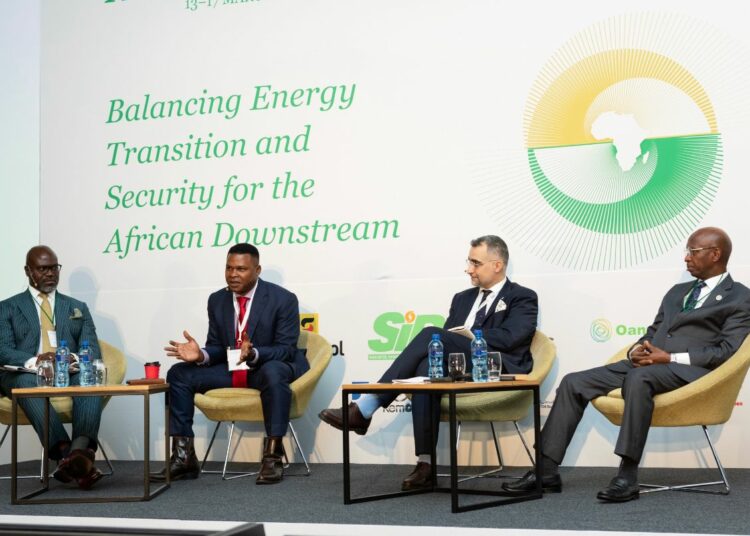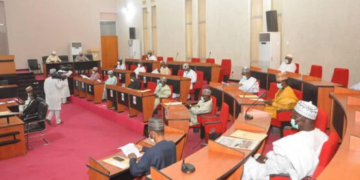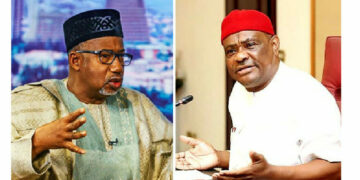African Refiners and Distributors Association (ARDA) and stakeholders across the energy sector have asked Africa to prioritise as a short term goal its energy security despite the push for energy transition.
Warning that the surging population on the continent could widen energy need and increase environmental and health problems, the stakeholders, who converged on
Cape Town, South Africa, stressed that unless something was urgently done to revive refineries across the continent and bridge electricity access, projected development may remain a mirage.
They equally called for the need to refine cleaner petroleum products, address huge Liquefied Petroleum Gas (LPG) shortage and distribution and storage infrastructure.
Coming a year after the invasion of Ukraine by Russia with the multinational impacts, especially high product prices and increasing debt burden, the stakeholders, who met at a yearly conference, organised by ARDA, were worried about the continent’s comatose refineries, ageing storage and distribution infrastructure, poor port architecture, gas to power challenges, crude oil theft, rising subsidy on petroleum products and other issues compounding existing woes.
Already, four million premature deaths were being recorded yearly from the 700 million people that lack clean cooking gas. Even as stakeholders expressed anxiety that Africa’s population was surging for a global high, the continent remains the only region with growing populace, but without energy access.
Recall that while Africa’s healthcare sector is expected to hit about $259 billion in the next seven years, most Africans finance their medicare out-of-pocket, as budgetary allocation remains dismal amid infrastructure deficit.
By May this year, Nigeria’s debt is projected to hit N77 trillion ($171.2 billion). Reportedly, public debt has doubled in Africa since 2010, standing at 65 per cent of Gross Domestic Product (GDP) in 2022. It was only 32.7 per cent in 2010.
This is coming at a time when the cost of borrowing is rapidly increasing, as rising interest foists more complications with most African countries unable to issue Eurobond, while refinancing costs double with an average increase of 600 basis points, and even up to 1800 basis points in others.
The Overseas Development Institute has also noted that $140 billion of Eurobonds, and an average maturity of 10 years, meant that refinancing cost of 600 bases or six per cent would see interest costs amount to $8.4 billion yearly or $84 billion in total over the life of the bonds. This represents 0.3 per cent of Africa’s yearly GDP, and given that Eurobonds average 30 per cent of total debt, the overall cost of increased debt servicing would be a painful one per cent of GDP each year, the think tank submitted.
The experts were calling for a rethink across the continent that would make the Africa Finance Corporation (AFC) and Africa Energy Bank to provide necessary funding, as they insisted that conversations on energy transition and sustainability were skewed, and not global, as being pushed.
Nigeria’s Anibor Kragha, who heads ARDA; Group Chief Executive Offficer (GCEO) of Nigerian National Petroleum Company (NNPC) Limited, Mele Kyari; Executive Director of Sahara Group, Wale Ajibade; Programme Director of Saudi Arabia’s Oil Sustainability Programme (OSP), Mohammad Altayyar; Executive Chairman of African Energy Chamber, NJ Ayuk; Secretary General of African Petroleum Producers Association, Omar Farouk Ibrahim, among others, were ruffled by the looming crisis on the continent.
African population is expected to account for nearly one quarter of global populace in 2040, and is set to rise from 1.4 billion in 2022 to 2.1 billion in 2040, with almost one in every two people added to the global population being an African. That would make the continent’s population outshoot China and India combined this year.
While Nigeria is unable to resolve its electricity crisis above the 5,000 megawatts all-time capacity, Kyari said plans have been concluded for the company to generate 5,000WM electricity.
Represented by Group Executive Director, NNPC Limited Downstream, Adeyemi Adetunji, the GCEO stressed the need for investment in homegrown technologies and innovations that would support decisions, improve operational efficiency, minimise impacts on the environment and provide a new competitive edge.
For his part, Kragha noted that prevailing market volatilities and geopolitical issues have exposed vulnerabilities in world’s energy mix, especially energy security, affordability and resilience of global supply. He noted that energy transition and security are important and must occur simultaneously for both objectives to be achieved.
According to him, energy security covers both uninterrupted access to energy and securing energy supplies at an affordable price, adding that the concern for Africa, especially in the short term, is the need to meet energy security.
“Russia-Ukraine conflict showed the need for short-term interventions to address the energy crisis alongside mid-to long-term goals of energy transition,” Kragha said.
He said the trilemma of achieving decarbonization of existing operations, reinforcing energy supply security and ensuring price stability must be balanced.
Kragha said fossil fuels demand and products imports would grow over next two decades on the continent but would compound with growing urban population growth to result in increased pollution.
The ARDA Executive Secretary stated that sustainable transition to cleaner fuels remained imperative to address public health issues.
While Ajibade said achieving Africa’s energy and climate goals means more than doubling energy investment, disclosing that the continent would need $190 billion each year from 2026 to 2030, with two-third of the funding going to clean energy.
According to him, oil would continue to be an important source of energy for Africa, stressing however that its production and operation must be cleaner to keep with global standards.
He noted that reduction in gas flare, methane, changing power sources, increasing carbon capture use and storage, changing power sources and increasing energy efficiency must be prioritised.
Ajibade said a lasting solution to theft, subsidy, energy transition, supply chain issue and continuous importation of petroleum products should be a priority for the continent.
He said if Africa would meet growing energy demand, the supply of refined products within the continent has to be expanded.
“While fossil fuels will continue to remain the major source of Africa’s energy demand, particularly through oil, it is expected that there will be a major shift towards a modern and cleaner energy mix.
“African demand for Natural Gas and Renewables will increase significantly. Natural Gas would now begin to play the role of bridging between more polluting fossil fuels and zero-carbon technologies such as wind and
solar energy. This is especially necessary for African nations where a full transition to renewable sources will be quite costly,” Ajibade said.
According to him, “despite the promise of the African renewable market, risks on three levels continue to prevent many investors from committing their capital; macro, industry and transaction.”
Ibrahim noted that Africa remained the most affected in the global energy challenge, adding that sustainability being pursued as a global norm posed concern to African countries.
According to him, African leaders must rethink differently otherwise energy security would be compromised by agendas which do not reflect the African situation.
“So when I’m told I have to have a bankable project before investors will come in, I tell you, most investors will never come. Think differently. . Ask yourself why must you rely on outsiders to be able to raise the funds to do what must be done?,” he said.
Ibrahim said while the rest of the west world pushes Africa to abandon energy subsidies, it won’t engage in such at the detriment of energy security as it remained the live wire of the economy.
Ibrahim noted that while the banks are being finalised and would be operational before the end of the year, Africans must be ready to finance the banks.
Ayuk stated that the over 600 million, who have no access to electricity, must be a priority, adding that African companies must fund energy security on the continent.
Altayyar noted that clean cooking must be a political, economic, and environmental priority, which must be supported by policies, backed by investments, and multi-sector partnerships.
According to him, supply chain, socio-cultural, economic and regulatory challenges continue to frustrate clean cooking in developing countries.
He bemoaned that apart from four million premature deaths which result from lack of clean cooking, the 2.6 billion people, who rely on solid fuel for cooking, spend a third of their income on fuel.





